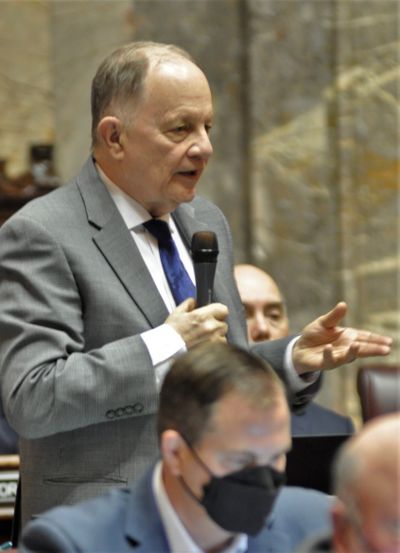Washington Senate balks at rules for clergy reporting child abuse

OLYMPIA – The Washington Senate refused Monday to require clergy and religious leaders to report sexual abuse of children that is disclosed by a congregant during confession. They sent a bill to expand protections of child abuse back to the House for further discussion.
With a week remaining in the session, legislators are pushing through bills that have been approved over the previous 100 days by both chambers with differences that might be large or small.
Most – but not all – have been reworked and refined to the point they can receive a quick final approval.
But after a spirited debate over a clash between religious freedom and protecting endangered children, the Senate refused to accept House changes to a bill it originally passed unanimously.
The Senate originally passed the bill unanimously, with an exception for information about child abuse learned during confession. The House version extends that requirement to information learned during confession.
Opponents argued the change was an infringement on the constitutionally guaranteed rights of certain religions, including Catholics, whose priests aren’t allowed to reveal information divulged in confession.
“This is not going to work if it passes,” said Sen. Mike Padden, R-Spokane Valley. “Priests are going to go to jail” rather than report information from the confessional.
They also may not know the congregant, because many confessions are conducted under anonymous conditions, with a screen separating the penitent and the priest.
Supporters of the change said it would protect children.
“They need to know the adults in their life will do something when that child is being abused,” said Sen. Noel Frame, D-Seattle. Seven other states and the territory of Guam already have such laws.
Priests would only have to report suspected abuse to law enforcement or child protective workers, she added, who would have to confirm the abuse and be the ones testifying at trial.
“It’s not about religion. It’s about a crime,” said Sen. Patty Kuderer, D-Bellevue.
But Sen. Judy Warnick, R-Moses Lake, suggested the many lawyers in the Legislature should liken the protections for what a priest learns in a confessional to attorney-client privilege.
“How would (breaking) attorney-client privilege be different than what we are asking priests to divulge today?” Warnick said.
Sen. Claudia Kauffman, D-Kent, argued the bill could also affect tribal elders, who are told things in confidence by people who seek their advice or guidance.
After about a half-hour of debate, a few Democrats joined Republicans in voting to reject the changes and send the bill back to the House. In the coming days, representatives could remove the amendments and pass the bill as it came out of the Senate; remove the amendments but add some other conditions the Senate would be asked to approve; or insist in keeping the requirements for reporting child abuse revealed in privileged settings and ask the Senate to reconsider its vote.
The two chambers have until midnight Sunday to resolve any differences on a wide range of bills, as well as pass a two-year operating budget, a capital construction budget and a separate transportation budget that covers state highways, bridges, ferries and mass transit systems.